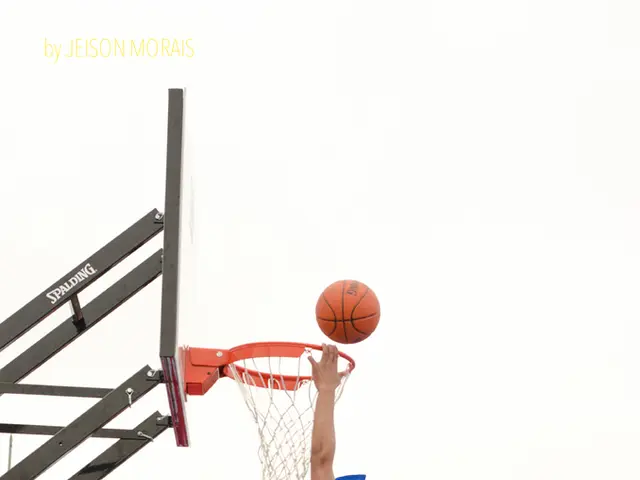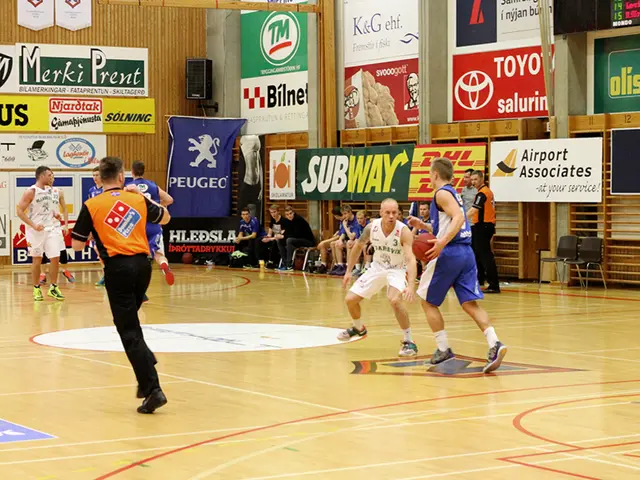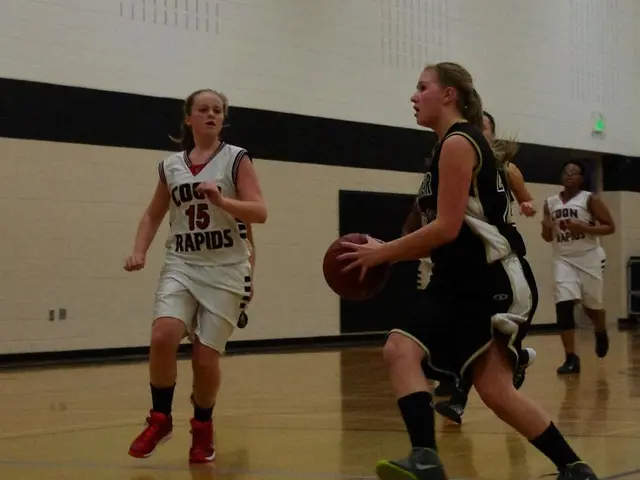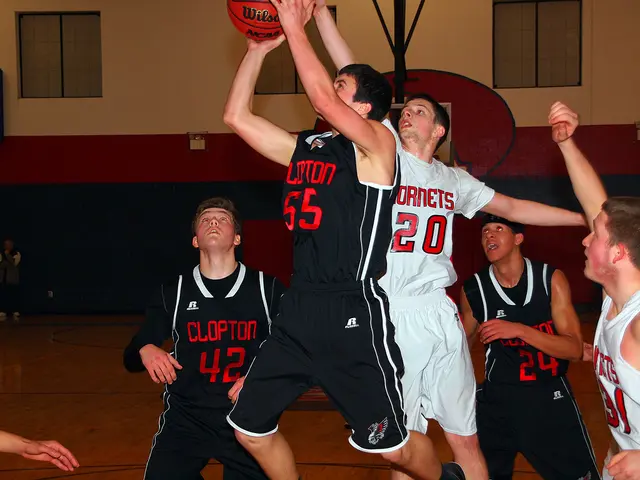Scandal at Fresno State Could Boost Support for SAFE Betting Legislation
Headline: Fresno State Basketball Players Under Investigation for Betting Scandal Amidst Push for College Sports Betting Regulations
Intro: Fresno State's men's basketball program finds itself embroiled in controversy, with three players under investigation for violating NCAA gambling rules. Two players, Jalen Weaver and Zaon Collins, have been suspended, while a third, Mykell Robinson, has been ousted from the team. This scandal comes at a time when Congress is discussing the SAFE Bet Act, a federal measure meant to tighten regulations on sports betting, specifically focusing on college sports.
Players Implicated and Allegations
The scandal revolves around claims that the suspended duo, Weaver and Collins, wagered on their own game-related bets during matches they featured in, while Robinson stands accused of betting on professional sports. Such gambling violations, particularly betting on one's own games, stir concerns about point shaving or match manipulation.
With Fresno State set to face Air Force, the abrupt suspension of two key contributors, Weaver (12.5 ppg) and Collins (12.0 ppg, 4.7 apg), raised eyebrows. The university cited an "eligibility matter" as the reason for their absence. Meanwhile, Robinson, a promising junior forward (10.3 ppg, 6.2 rpg), found himself dropped from the team altogether.
The SAFE Bet Act and Its Impact on College Sports Gambling
The unfolding scandal in Fresno State serves as a potent example to lawmakers advocating for stricter betting regulations. The timing is significant, as Congress is championing the SAFE Bet Act, a proposed law geared towards imposing sanctions on sports betting, especially in the realm of college sports.
If enacted, the SAFE Bet Act could force California sportsbooks and mobile betting apps nationwide to eliminate NCAA game lines and implement stringent compliance measures.
Growing Betting Scandals in College Sports
Fresno State is not the first university to confront such a gambling predicament. Iowa and Iowa State institutions have also grappled with gambling-related investigations. As the sports betting market comes under increased scrutiny, Fresno State's predicament could serve as a game-changer for how lawmakers, legal sportsbooks, and universities govern gambling proceedings moving forward.
The NCAA's ongoing probe of Fresno State's players could potentially lead to further sanctions. Meanwhile, the SAFE Bet Act continues to gain momentum, with proponents viewing cases like Fresno State as proof that college sports ought to remain outside the legal betting market.
Advertising Disclosure
For your convenience, our site may earn a commission from partnerships with sportsbooks.
News tags: betting scandal | California | Fresno State Bulldogs | Jalen Weaver | Mykell Robinson | NCAA | SAFE Bet Act | Zaon Collins
Author: Michael Molter
Michael Molter, a former scout for Florida State University and the University of Alabama, transitioned into writing, focusing on NBA content. A graduate of both schools, Michael now delves into legal sports betting bills, sports betting revenue data, tennis betting odds, and sportsbook reviews. When not glued to the TV watching lower-tier tennis matches or indulging in basketball, hiking, and kayaking, he can be found analyzing the sports betting landscape.
Enrichment Data
Overall:The SAFE Bet Act, proposed to impose national sports betting regulations, has stalled in the Senate [3] and cannot proceed until the next legislative session in 2025. The act aims to enforce various sports betting standards across the US.
Regulations on College Sports Betting:The SAFE Bet Act proposes stricter regulations for college sports betting, including:
- Prohibition of College Player Prop Bets: Betting on specific player outcomes in college games would be outlawed.
- Restrictions on Advertising: Advertising restrictions are set between 8:00 AM and 10:00 PM and during live sporting events, which may impact college sports broadcasts.
- National Self-Exclusion Database: Creation of a nationwide database to help individuals exclude themselves from sports betting, beneficial for college students and athletes.
- Financial Restrictions: The act imposes financial restrictions such as deposit limits and wagering caps, which could impact betting patterns on college sports.
These measures are designed to provide consumer protection and reduce potential negative impacts on college sports due to sports betting. However, the act's progress has been slowed due to its current stalled status in the Senate.
- The investigation into Fresno State's basketball players, who are accused of violating NCAA gambling rules, has brought forth allegations of wagers placed on game-related bets and concerns about point shaving or match manipulation.
- Suspended players Jalen Weaver and Zaon Collins are implicated in betting on their own games, while Mykell Robinson is accused of betting on professional sports.
- The timing of this scandal coincides with Congress's discussion of the SAFE Bet Act, a proposed law targeting tighter regulations on sports betting, particularly in college sports.
- If passed, the SAFE Bet Act could require California sportsbooks and mobile betting apps to eliminate NCAA game lines and implement stringent compliance measures.
- Previous gambling investigations at Iowa and Iowa State universities demonstrate that Fresno State is not alone in confronting such scandals as the sports betting market comes under increased scrutiny.
- The NCAA's ongoing probe of Fresno State's players could result in further sanctions, while the SAFE Bet Act gains momentum with proponents arguing that college sports should remain outside the legal betting market.
- The SAFE Bet Act, currently stalled in the Senate, proposes various regulations for college sports betting, such as prohibiting player prop bets, advertising restrictions, creating a national self-exclusion database, and implementing financial restrictions, all aiming to provide consumer protection and reduce potential negative impacts on college sports due to sports betting.








